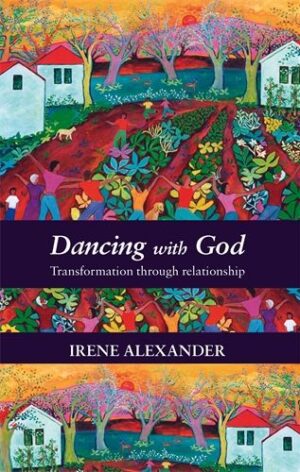



The beginning of Chapter 8 is a suggestion that we as Christians have often followed in the way of the disciples looking for political or social power rather than following the way of the cross, the way of the Crucified One. This our societal way – ascent, success, power, status, reputation riches and sadly, the church has often been little different from the surrounding culture. Francis of Assisi, Mother Teresa, and many of the mystics have called us to the way of descent
Share with the group glimpses you have had of people or churches who have demonstrated this counter-cultural descending way. What, in your experience, has hindered the church from following in this way?
The quote from Gordon Cosby sets it out clearly: “God is the descending God. The movement is down, down, down until it finds the sickest, the most afflicted, the most helpless, the most alienated, the most cut off. The truest symbols that we have of Jesus are the lamb – the lamb led to the slaughter, a sheep before its shearers being dumb. Total poverty: a dumb sheep, the Lamb of God, and the servant Christ kneeling with a towel and a basin, washing feet on the eve of his crucifixion. The weeping Christ riding into Jerusalem on a donkey.” Stay for some time with this quote.
What happens to you as you meditate on these words? Share your response.
Maggie Ross continues with these images of Jesus. She speaks of “God’s unswerving commitment to suffer with and within the creation, to go to the heart of pain, to generate new life, hope, and joy out of the cry of dereliction, out of the pain of utter self-denudation, utter self-emptying, utter engaging love.” What is it like to see God as a God of suffering? A God who gives away his power, sharing it with his creation, allowing destruction on earth as a result of our wilfulness and selfishness.
Share your response to seeing God in this way.
We can’t have it both ways. As Bennet Sims says, in his book Servanthood: We must “choose between a God enthroned in the power of imperial privilege and a God ‘disenthroned’ in the more exquisite power of servanthood.”
Share your response to this choice that we are called to face.
The chapter finishes with a final quote from Maggie Ross: “Faith is not assent to doctrines…It is trust that God – as Christ shows us – has been there before us, goes within us, waits to find us beyond the edges of utter dark.”
Have you had an experience of finding God at the edges of utter dark? Are you able to share this with the group?
I imagine the other disciples finding Peter rather annoying. He’s always the first to speak up, to jump in, to see himself as closest to Jesus. And yet I have come to love Peter because he says things that I would not say out loud. He’s rebuked by Jesus, but he learns to be like him, he makes mistakes but he stands up and tries again. He shows me the way of descent.
Try writing a letter to Peter – telling him what you like or don’t like him. Ask him some questions. As a group respond to the questions others have asked.